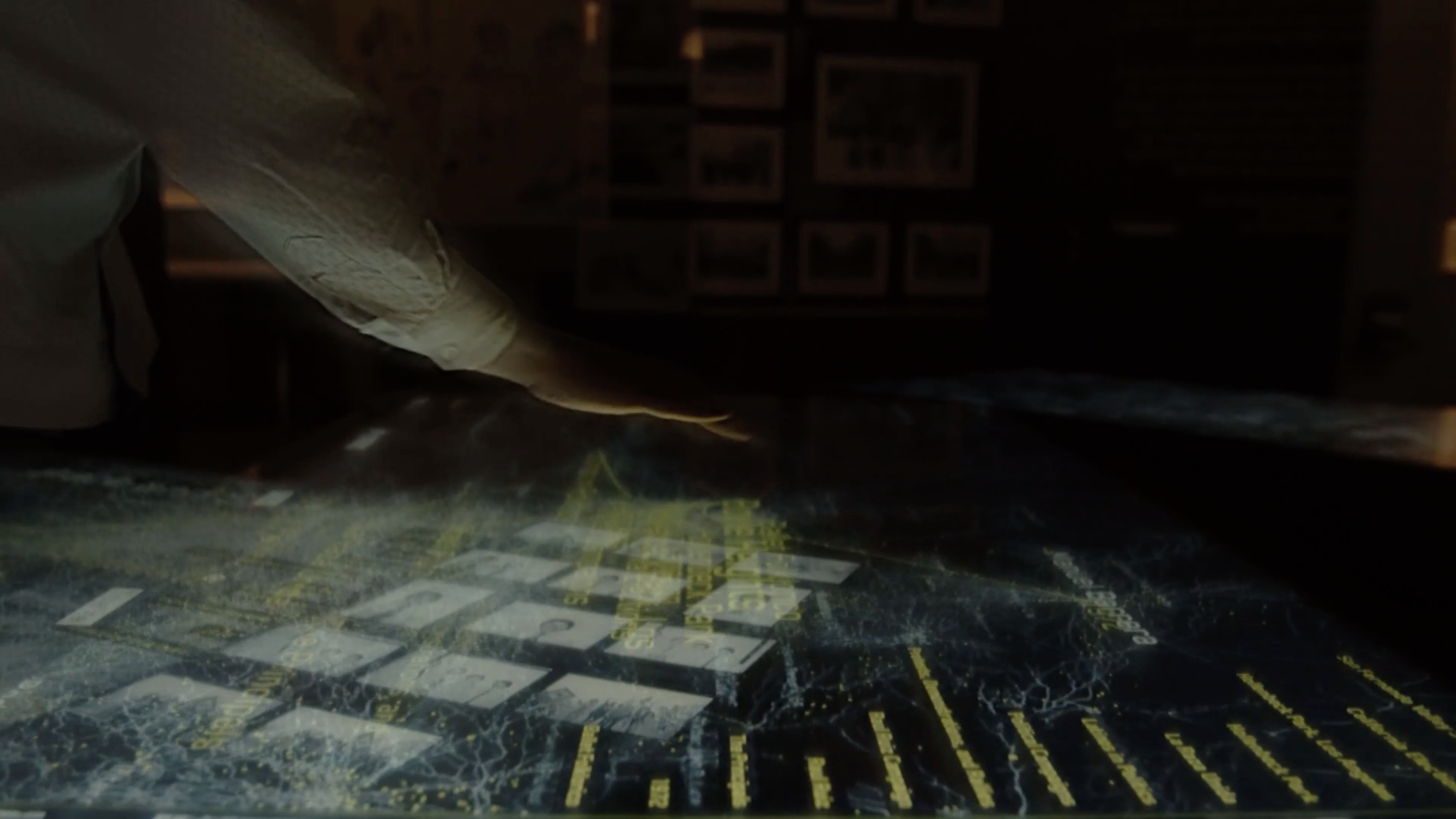
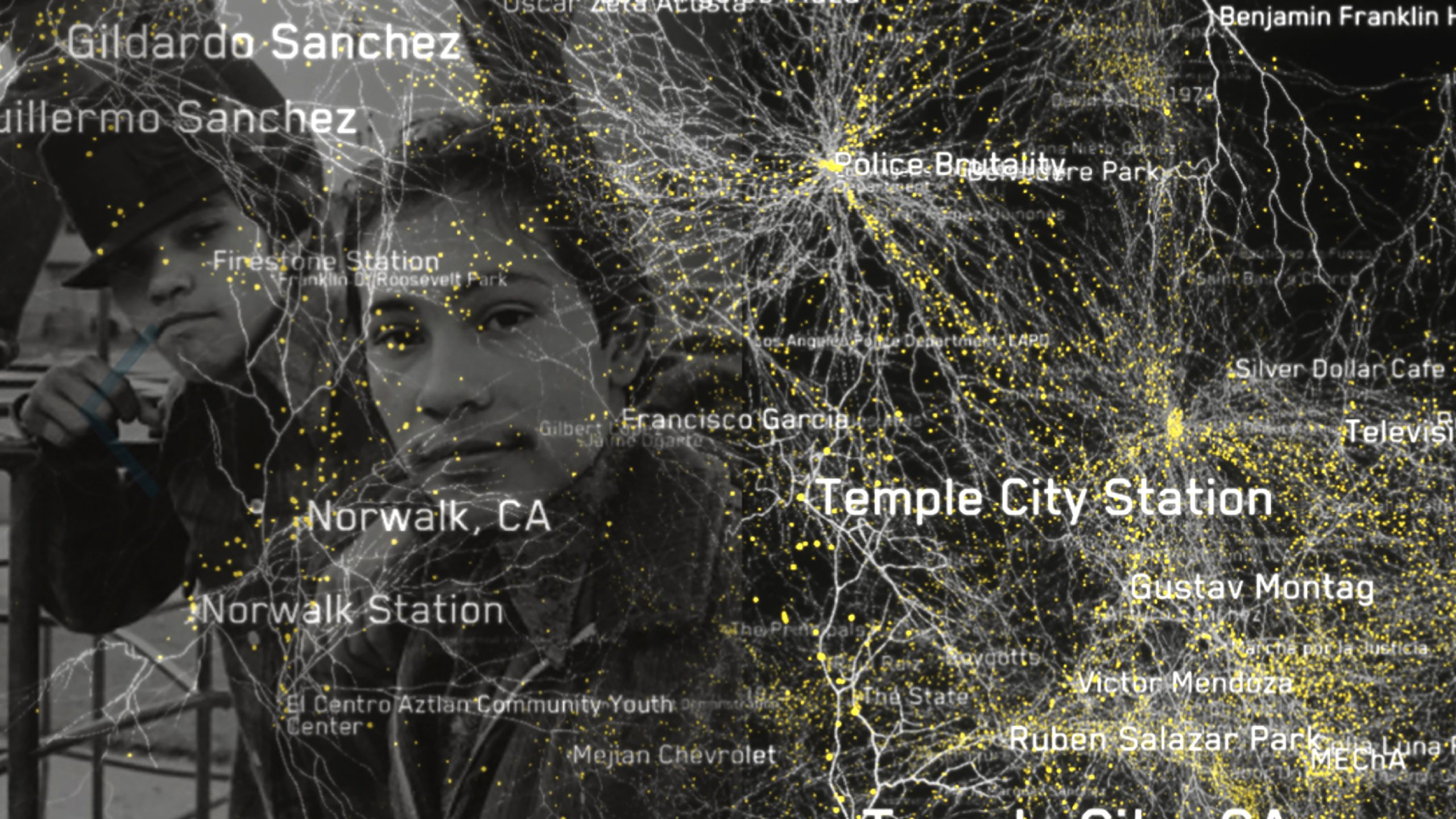
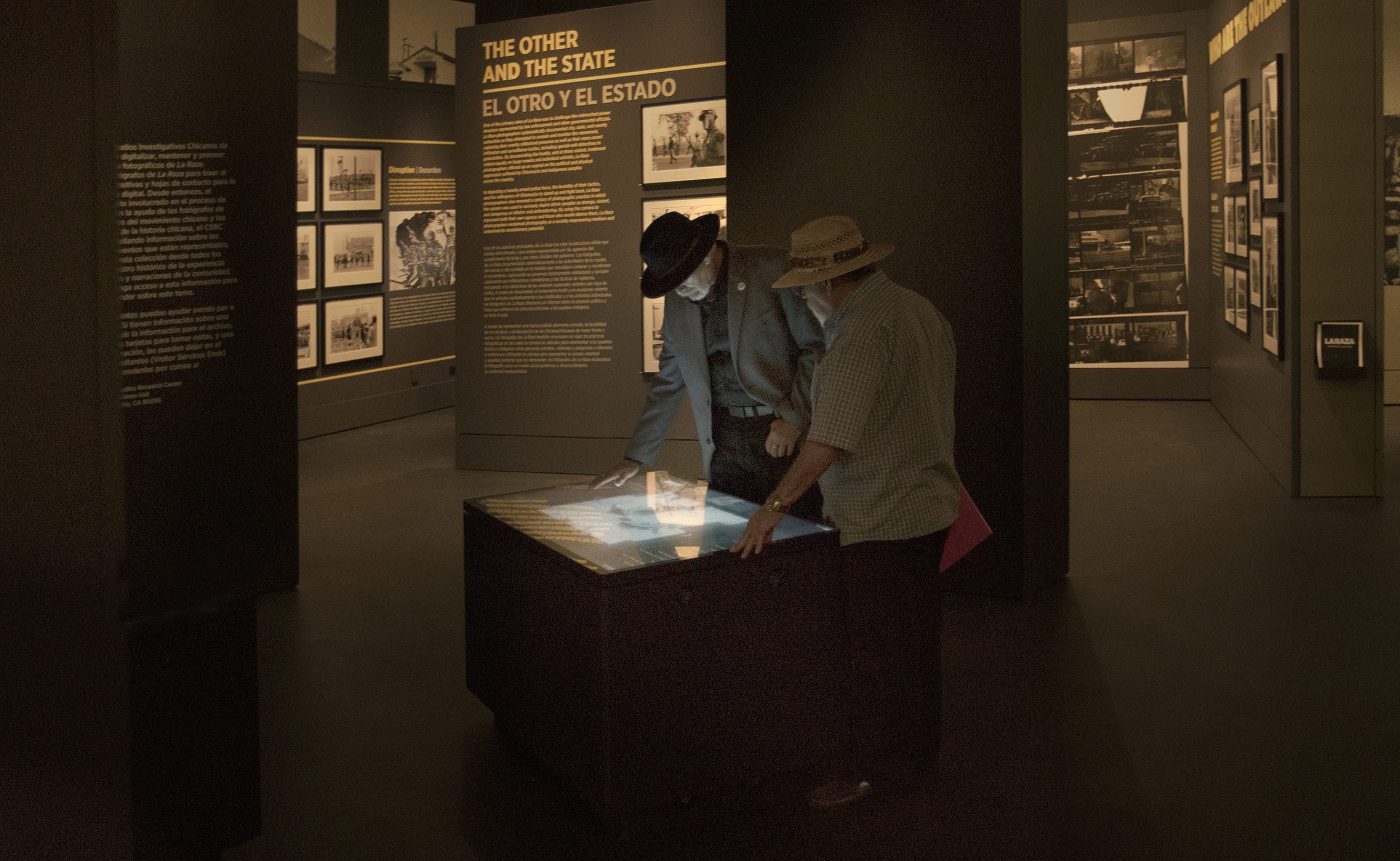
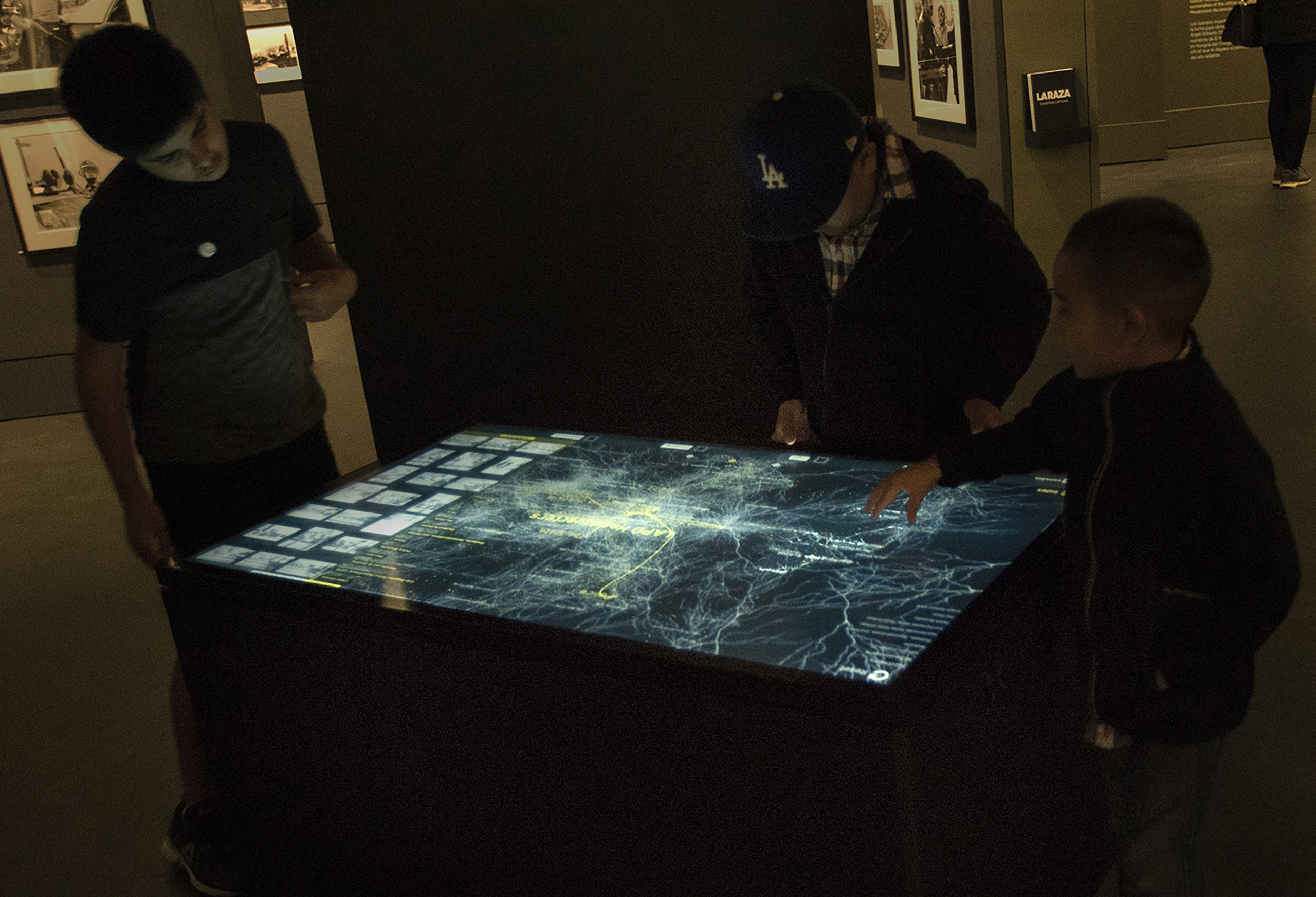
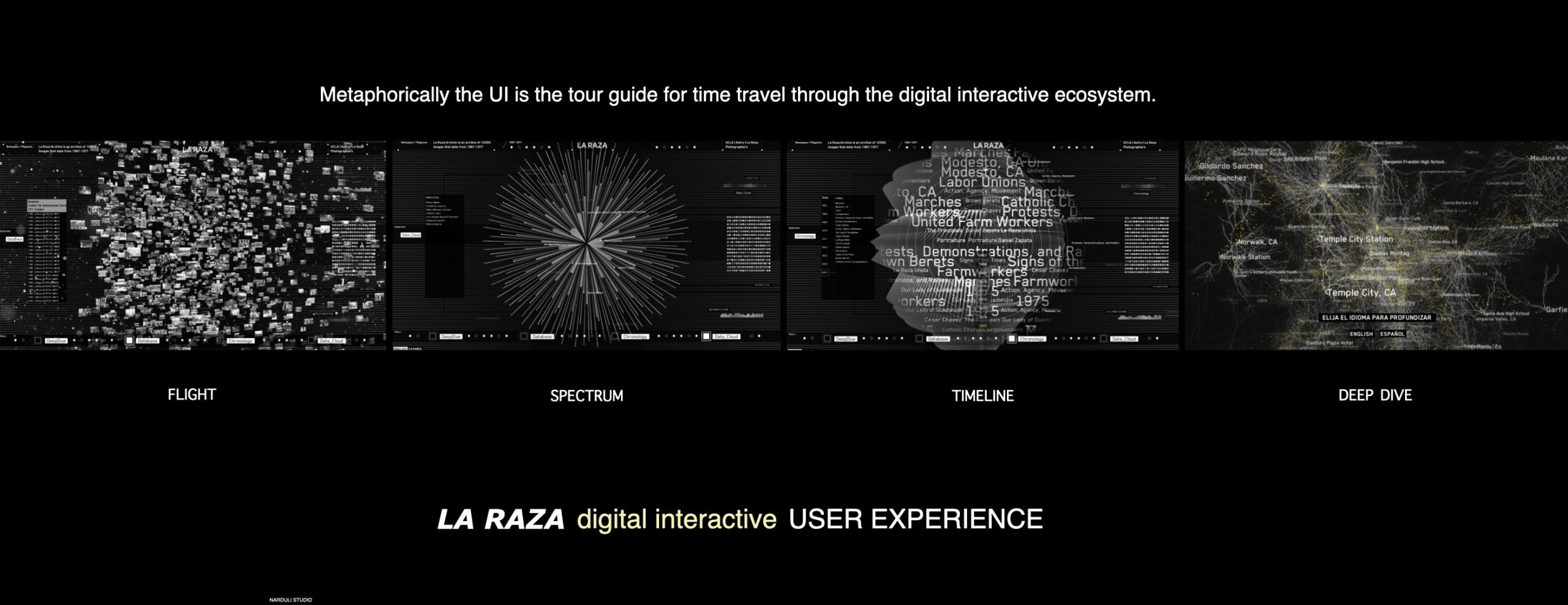
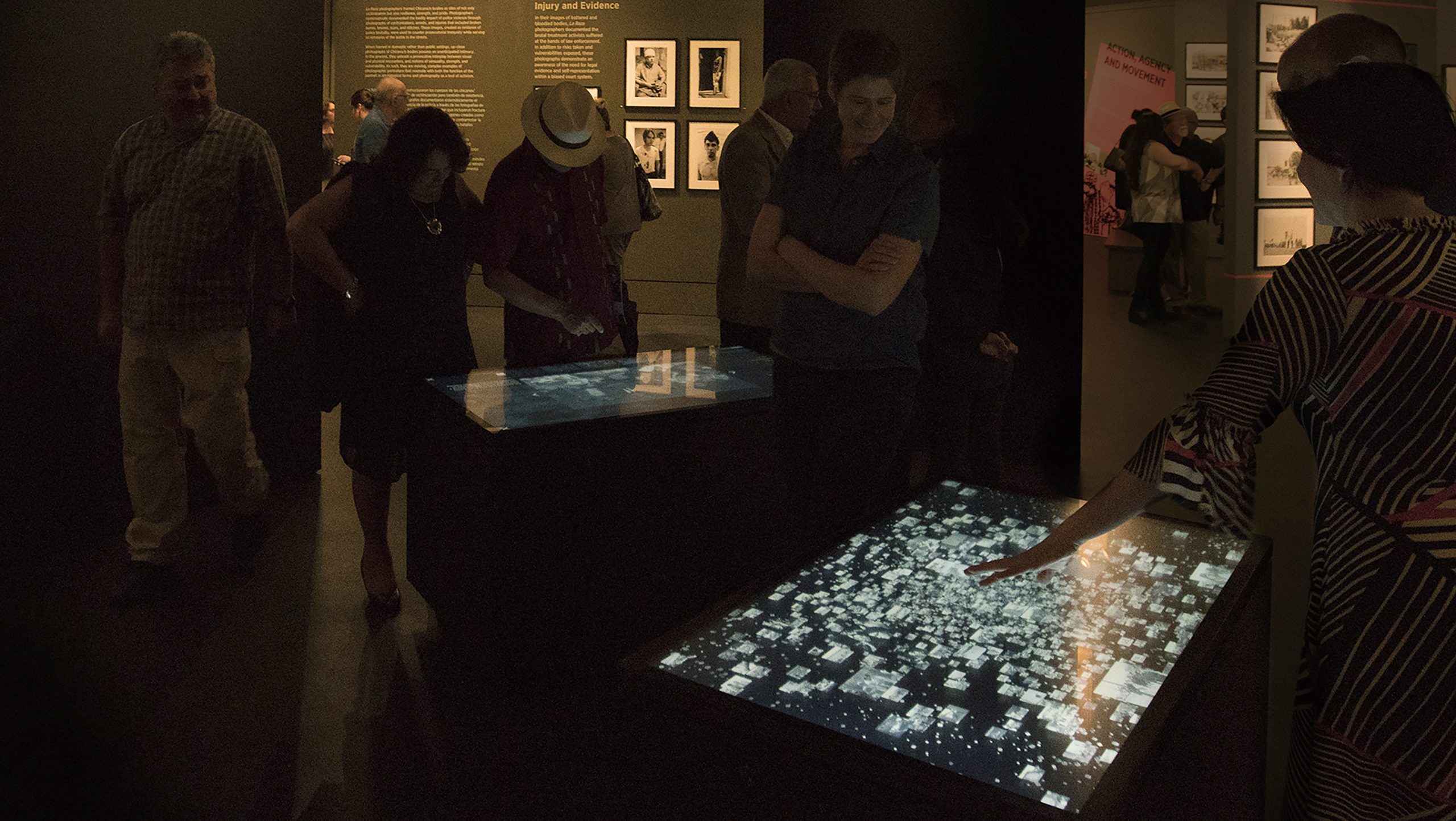
Client: Pacific Standard Time: LA/LA and Autry Museum
Location: Los Angeles, CA, United States
Completion date: 2019
Project Team
Artist
SUSAN NARDULI
SUSAN NARDULI STUDIO
The photographers of La Raza
La Raza Photographers
La Raza Newspaper / La Raza Magazine
Co-curator La Raza Exhibit and La Raza photographer
Luis C. Garza
Archivist/Librarian
Xaviera Flores
UCLA Chicano Studies Research Center
Director
Chon Noriega
UCLA Chicano Studies Research Center
Software Development
Andrey Boyarintsev
Ivan Raster Software Lab
Software Development
Michael Crumrine
Ivan Raster Software Lab
Senior Media Producer
Laura Purdy
Autry Museum
Executive VP of Research & Interpretation; Co-curator La Raza Exhibit
Amy Scott
Autry Museum
Overview
From 1967 to 1977 La Raza newspaper provided a voice to the Chicano Rights movement as it unfolded across Los Angeles. More than 25,000 images captured by the La Raza photographers bear witness to this struggle for social justice. Most had never been seen.
As part of Pacific Standard Time: LA/LA, Narduli Studio was commissioned to bring the images to life in an interactive experience. We imagined the archive as a living ecosystem and the digital interactive as a neural universe – where the long-term memory effectively acts as a dynamic knowledge base similar to the human neural system. It places the viewer within the broader context of the Chicano Movement during this moment in history and brings an understanding of its relevance to personal expression, politics and culture.
Goals
In creating the La Raza Interactive Experience we not only had to imagine a way of visualizing this vast archive but also the means to develop a practical system for navigation and research. Given the sheer amount of photographs and associated data, this in itself was a difficult task. But more importantly, we understood that the true challenge of this project was in creating an experience that would bring this powerful body of work to life 50 years after it was created. We needed to make tangible its relevancy for all who would see this work today. To do this we created an experience that allows the viewer to explore the context of La Raza with all the nuances and connections that underlie any social/political movement. The La Raza Interactive Experience brings the viewer into that time to understand the significance of this work in an evolving Chicano movement and the importance of these citizen-journalists within the culture of 1960s-1970s Los Angeles and mainstream media.
Process
UCLA’s Chicano Studies Research Center scanned and cataloged the entire collection of negatives from La Raza. Using latest technologies in machine learning and pattern recognition we worked with our Development Team to create a digital neural network specific to the La Raza Collection. The primary algorithm is a neural network structure that organizes the data and metadata into a 3D network - an explorable universe that holds the archive and reveals its magnitude of connections.
This 3D navigation environment has multiple senses of order that can display the archive metadata connections as well as new connections made through user interaction. It’s long-term memory effectively acts as a (dynamic) knowledge base similar to the human neural system.
This allows for a navigational experience only possible by computer analysis of the database with user input expanding the experience over time.
The multi-layered explorable environment contains four unique experiences that act as portals to navigate through the 25,000 image database. Metaphorically the UI is the tour guide for time travel through the digital interactive ecosystem.
Additional Information
2019 Creative Communication Gold Award in User Experience Design: UX & UI Design Technologies: Digital Interactive / Neural Network / Machine Learning /Pattern Recognition / Touchscreen technology / Bilingual Narratives / Dynamic interface